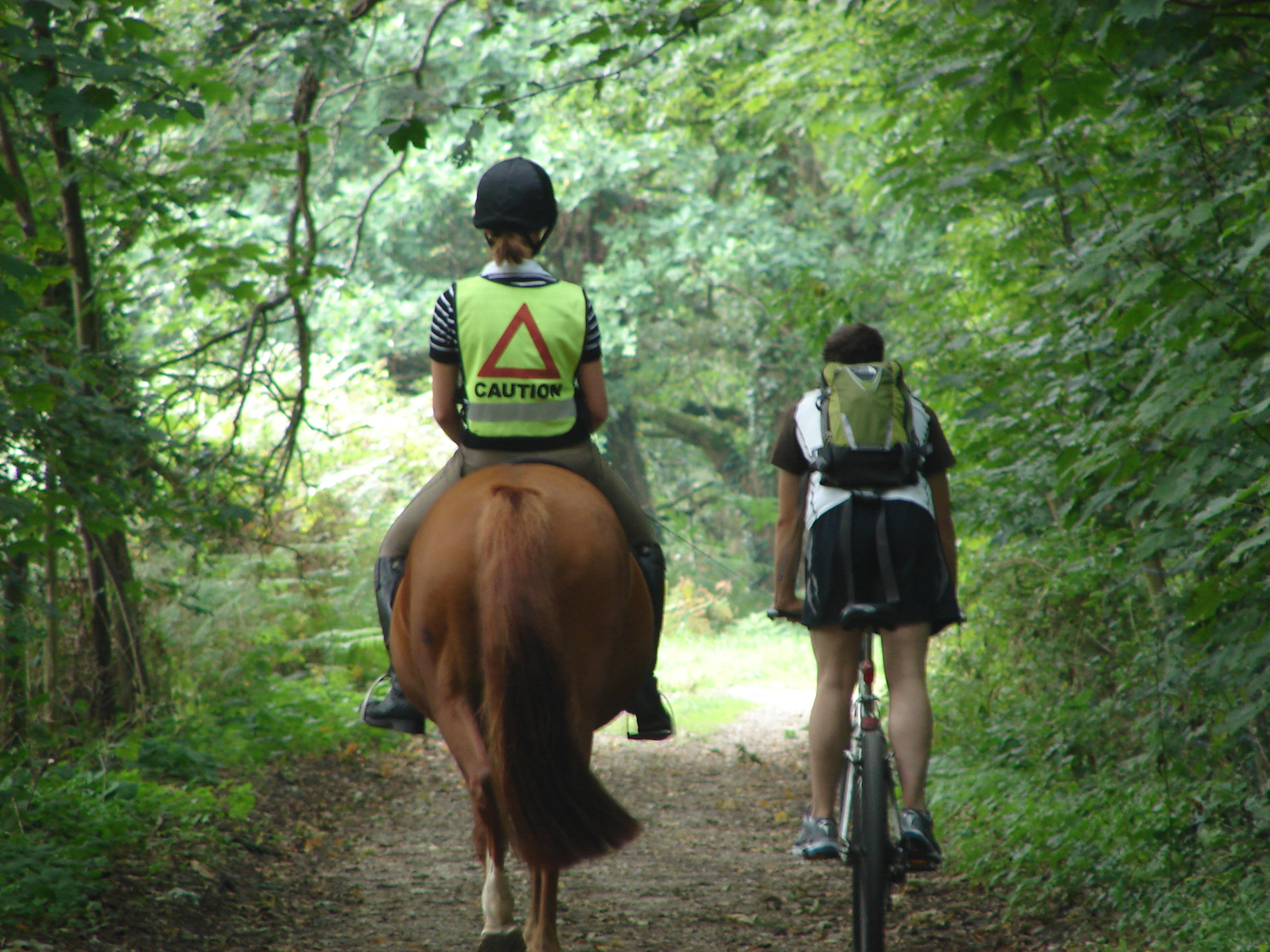
Editor’s note: As part of our series on horses in your community, we want to take a look at some of the issues you might face—good and bad—especially with non-horse neighbors.
Muck is a part of horse ownership. However, non-horse people aren’t accustomed to dealing with manure, especially in the amount that horses produce. People in town are used to carrying plastic bags around and “scooping poop” from their dogs, and they find it unsettling that horses can go when and where they please in the country. This problem will only get worse as suburban sprawl continues to encroach on once-rural land, bringing neighbors closer to farms, horse barns and riding areas.
Homeowners are drawn to the allure of the country, but many aren’t enamored with the smells, flies and dirt of the country lifestyle. Roadways and shared-use paths mean that equestrians and non-horse folks must co-exist.
“It’s important that we as horse people think about what can we do to limit the muck,” said Robert Coleman, PhD, PAS, associate professor and extension specialist for the University of Kentucky.
Being proactive can reduce the amount of waste tracked onto roads, especially when you are hauling muck away to a landfill or to spread on fields. First, monitor the tires of vehicles traveling roads to access fields for accumulated mud and muck. Hose off as necessary to avoid dropping excessive slop on roads. Be sure that barn waste remains in the truck, wagon or spreader as it travels to the dumping ground.
“Make sure to keep any muck controlled so that it is not flying off and being a nuisance to neighbors,” he added.
Think about the bicyclist who suddenly comes across the path of a muck wagon on the road, with no way to avoid the drippings from the wagon. The muck sprays from the tires up onto the cyclist, who might be only a few miles into a 20-, 50- or 100-mile ride. That won’t make the cyclist a horse supporter.
That same scenario isn’t quite as bad with mud, but the smell is really the only difference. The outcome is about the same.
Wet weather complicates a stable owner’s ability to limit mud and muck from being tracked out of farms and onto roadways. Reducing mud starts with a water runoff plan at your facility. Controlling rain runoff through gutters and downspouts directs excess water away from high traffic areas.
“In certain parts of the county rainfall has been high, so mud has been an issue. I would suggest high-traffic pads in areas where the horse owners leave the property either by vehicle or horseback,” he said.
Reducing the amount of muck on the property and on the equipment that travels the roads is one thing. But horses aren’t discriminating about where and when they go. Horses will poop on the trail, on the road, in driveways, and even on people’s yards if you have to ride on the side of a busy road to access trails or facilities. Bicyclists, runners and hikers should be aware of horses on shared use trails, but that doesn’t always mean they welcome the droppings.
“It’s impossible to keep manure off trails other than coming back later and cleaning it up,” Coleman said.
This is impractical and, on some trails, impossible. Coleman recommended reducing the opportunity to be a poor neighbor by taking the shortest route to the riding area and being courteous on the road and trail.
Although your horse barn might have been on the property for decades before the subdivisions appeared, making an effort to educate non-horse neighbors can go a long way in alleviating tensions over muck on the roads and shared pathways.
You also can get more ideas on getting along with neighbors from the article in the Stable Management Spring 2017 issue on “Being Neighborly.”


